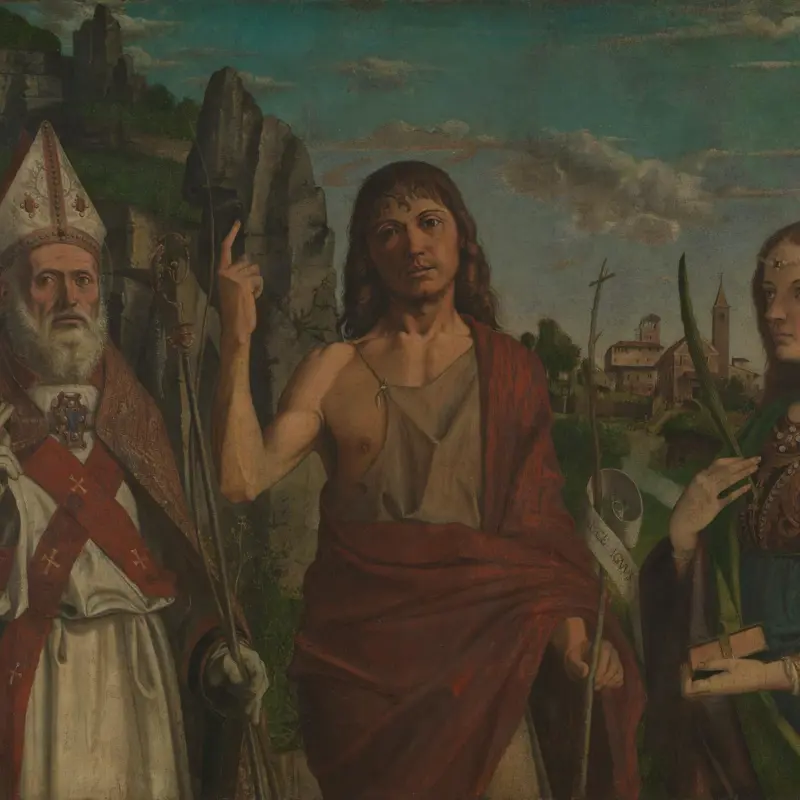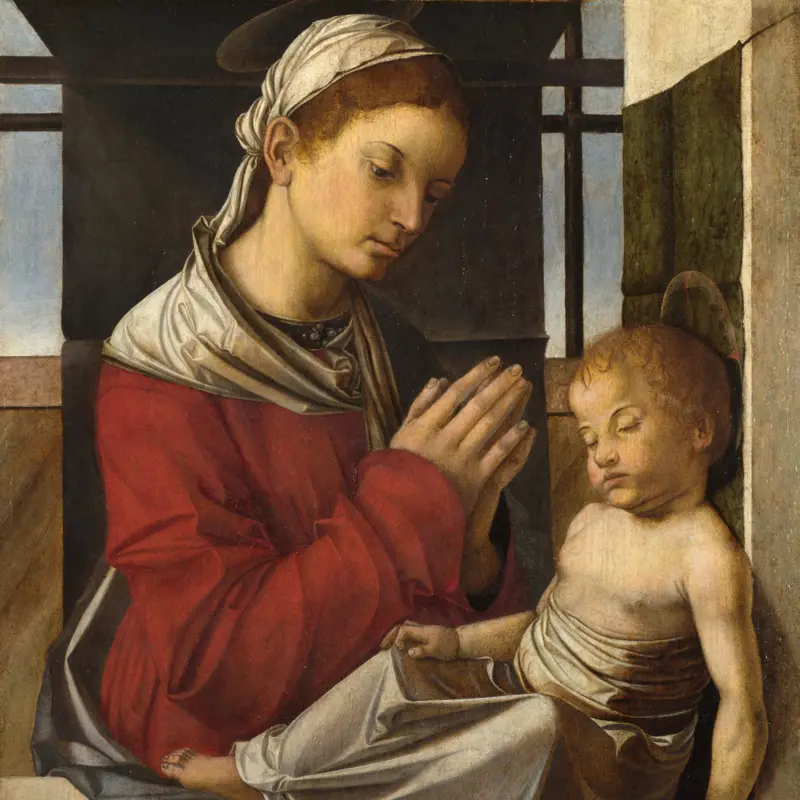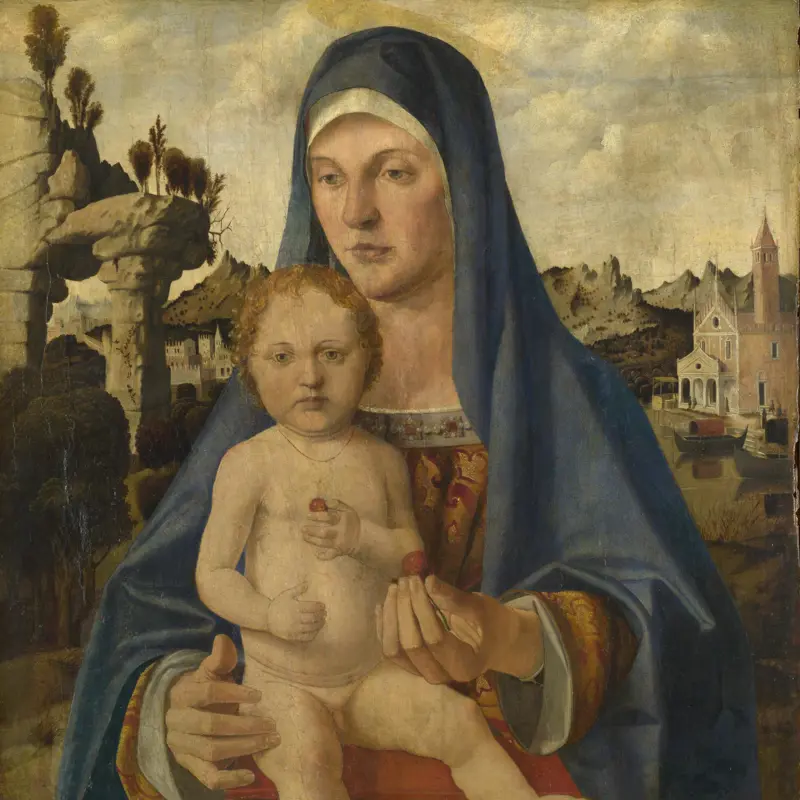Probably by Bartolomeo Montagna, 'The Virgin and Child', probably 1481
About the work
Overview
The Virgin and Christ Child are painted in fresco, a technique that involved painting directly onto fresh plaster. The Virgin’s mantle would originally have been a much more vivid shade of blue.
This once belonged to Austen Henry Layard, archaeologist and explorer. He was a founder of the Arundel Society, which aimed to document frescoes in Italian churches and palaces through drawings and art-historical descriptions.
When it was in Layard’s collection an inscription on its modern frame noted that it was from the choir of the church at Magrè, near the town of Schio in the province of Vicenza – but we don't know now what the evidence for this suggestion may have been. The painting was once thought to be by Giovanni Bellini or one of his followers, but now the suggestion of Montagna seems more likely. Montagna was from Vicenza, but the fragment is so damaged that it’s not possible to be certain who painted it.
Key facts
Details
- Full title
- The Virgin and Child
- Artist
- Probably by Bartolomeo Montagna
- Artist dates
- living 1459; died 1523
- Date made
- probably 1481
- Medium and support
- fresco
- Dimensions
- 83.8 × 57.8 cm
- Acquisition credit
- Presented by Lady Layard, 1900
- Inventory number
- NG1696
- Location
- Not on display
- Collection
- Main Collection
- Previous owners
Provenance
Additional information
Text extracted from the ‘Provenance’ section of the catalogue entry in Martin Davies, ‘National Gallery Catalogues: The Earlier Italian Schools’, London 1986; for further information, see the full catalogue entry.
Bibliography
-
1951Davies, Martin, National Gallery Catalogues: The Earlier Italian Schools, London 1951
-
1986Davies, Martin, National Gallery Catalogues: The Earlier Italian Schools, revised edn, London 1986
-
2001
C. Baker and T. Henry, The National Gallery: Complete Illustrated Catalogue, London 2001
About this record
If you know more about this work or have spotted an error, please contact us. Please note that exhibition histories are listed from 2009 onwards. Bibliographies may not be complete; more comprehensive information is available in the National Gallery Library.



